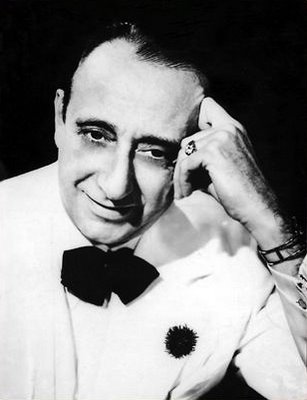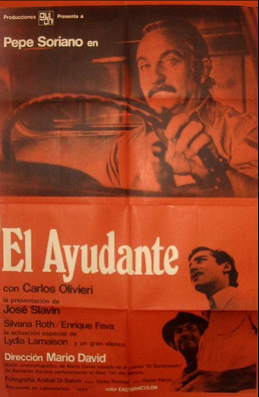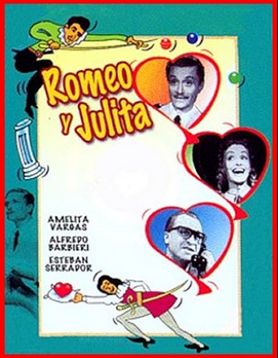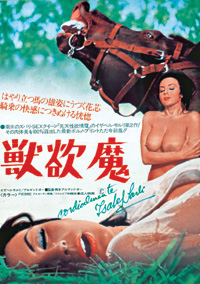
Juan d'Arienzo was an Argentine tango musician, also known as "El Rey del Compás". He was a violinist, band leader, and composer.

The Soul of the Accordion is a 1935 Argentine tango musical film from the Golden Age of Argentine cinema directed by Mario Soffici, who wrote it with José A. Bugliot. It is considered one of the earliest classics of Argentine cinema.

El Ayudante is a 1971 Argentine drama film directed and written by Mario David on his directorial debut, and starring Pepe Soriano, José Slavin and Enrique Fava. The screenplay, about a truck driver who befriends a young deaf man, was written by David, based on the book El sordomudo by the author Bernardo Kordon. The film premiered on 25 March 1971 in Buenos Aires, and was both a box office success and critically acclaimed.

Manuel Romeo was an Argentine film director, screenwriter, dramatist and score composer, one of the most important figures of the Golden Age of Argentine cinema. He directed and wrote over 50 films between 1931 and 1951 even composing the musical scores for several.

Elvira Fernández, vendedora de tiendas is a 1942 Argentine comedy film directed by Manuel Romero. It stars Paulina Singerman, Juan Carlos Thorry, Tito Lusiardo and Sofía Bozán. The film is about the daughter of a millionaire store owner, who organizes a worker strike.

The Girl's Houseboy is a 1951 Argentine musical comedy film, directed by Enrique Carreras on his directorial debut with Juan Sires. It is based on a play by Nato Lamarque, which he adapted for the screen. It stars Lolita Torres, Alfredo Barbieri, Tito Climent and Gogó Andreu and was released on 24 October 1951 in Buenos Aires.

Romeo and Juliet is a 1954 Argentine film directed by Enrique Carreras. The screenplay was written by Rafael Beltrán, based on the plot by Miguel de Calasanz. It stars Alfredo Barbieri, Amelia Vargas, Esteban Serrador and Susana Campos and was released on March 16, 1954.

El Juramento de Lagardere is a 1955 Argentine film directed by León Klimovsky, based on a screenplay by Emilio Villalba Welsh after the French novel Le Bossu -El jorobado by Paul Féval. The film stars Carlos Cores, Elsa Daniel, Andres Mejuto and Golde Flami, and premiered on December 11, 1955.
El Primer beso is a 1957 Argentine film directed by Enrique Carreras, written by Julio Porter, and starring Adrianita, Carlos Borsani and Francisco Álvarez.

Clouds of Smoke is a 1959 Argentine musical (tango) comedy film directed and written by Enrique Carreras. It stars tango singer Alberto Castillo, Mercedes Carreras, María Luisa Santés and Francisco Álvarez and was released on 14 May 1959. The film, Castillo's last, is dedicated to the memory of film director Manuel Romero.

Fiebre, also known as Fever, is a 1971 Argentine sexploitation film directed, produced and written by Armando Bó and starring Isabel Sarli. It was released on 22 June 1972 in Argentina. Fiebre is the name of the horse in the film.
Papá corazón se quiere casar is a 1974 Argentine film directed by Enrique Cahen Salaberry and written by Abel Santa Cruz.

Jorge Salcedo was a popular Argentine actor of radio, television and feature films, who appeared in film between 1941 and 1980, including the Golden Age of Argentine cinema.

Yo también tengo fiaca is a 1978 Argentine sex comedy film directed by Enrique Cahen Salaberry. The film, produced by Hector Bailez, is based on Ricardo Talesnik's successful 1967 play of the same name and stars Susana Giménez and Juan Carlos Calabró as a middle-aged middle class couple committing infidelity.

Lumiton is a former film production company and current museum located in Munro, Buenos Aires, Argentina. Lumiton Studios was founded in 1932 at the start of the Golden Age of Argentine cinema. Its lowbrow, populist films appealed to local audiences and were highly successful in Argentina and throughout Latin America. It was the main competitor to Argentina Sono Film in the 1940s.

El tesoro de la isla Maciel is a 1941 Argentine comedy film directed by Manuel Romero.

Mary Dormal (?–?) was an Argentine actress and vedette of the 1930s. She was one of the notable performers of the golden decade (1938–1948). Dormal worked with the director Manuel Romero, and with the film actors, Paulina Singerman, Enrique Serrano, and Niní Marshall. In theater, she appeared with Camila Quiroga, Norma Castillo, Nelida Quiroga, Mangacha Gutierrez, Arrieta Rosita Blanca Vidal, Dora Dolly, and Carmen Castex. Dorman was born in Buenos Aires and died there as well.

Paulina Singerman Begun was an Argentine actress and businesswoman who primarily worked during the Golden Age of Argentine cinema, performing on both stage and in films. In the later part of her career, she spent a decade performing for television. She was the younger sister of actress Berta Singerman. In 1981, she was awarded both a Diploma of Merit and a Platinum Konex for her comedy work in film and theatre.
Mario David was an Argentine film director and screenwriter. He directed and wrote 12 films between 1971 and 1996.















